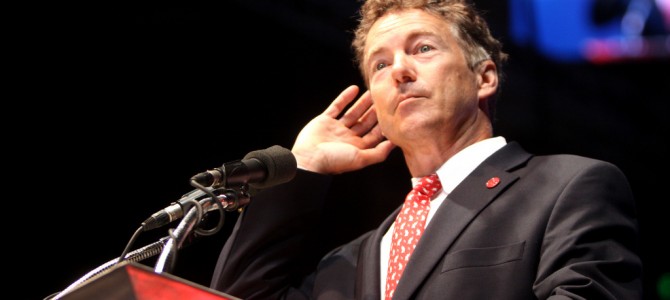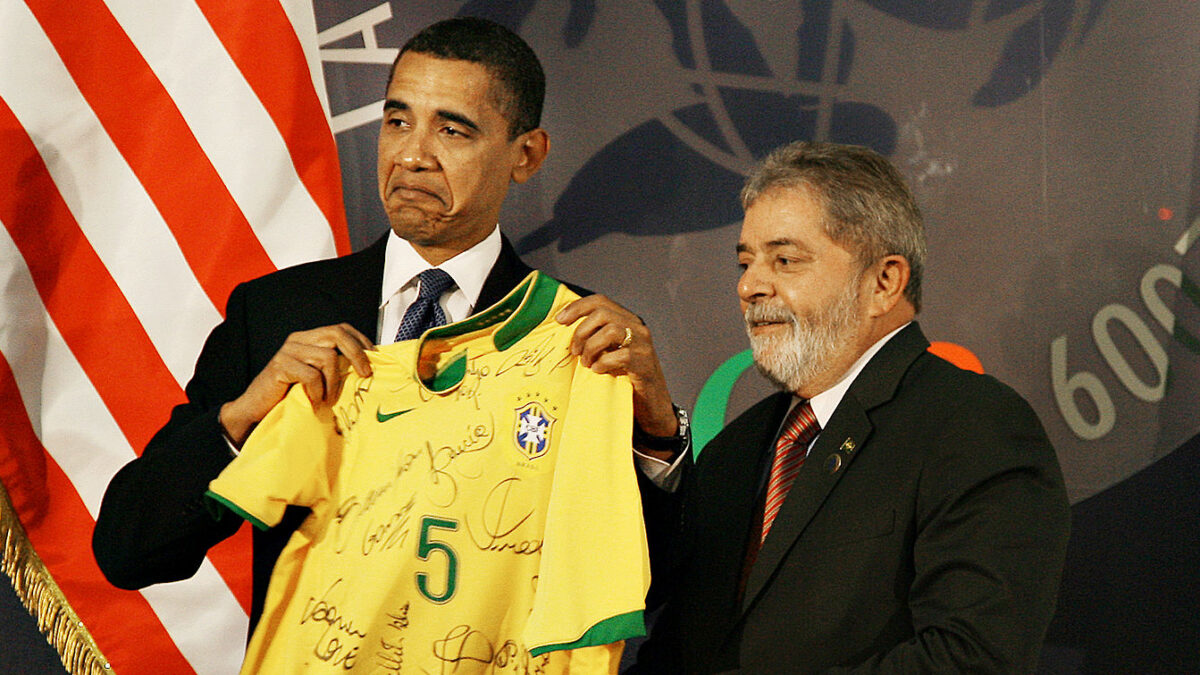
Buzzfeed recently offered readers a peek into the bottomless well that is right-wing hypocrisy. “Republican Senator Who Voted To Defund NPR Says He Listens To NPR,” reads the headline, “He declined to mention that on the show.” Arizona Senator Jeff Flake is evidently a fan of cerebral upmarket radio programming, but also voted to defund the media organization.
You know, it’s almost as if he knows one of these positions has absolutely nothing to do with the other. I enjoy NPR. I believe NPR, a network that boasts an audience in the tens of millions, can compete without taxpayer funding. You see: those are two distinct and non-conflicting sentences. But you know the drill. Distinctions are distracting. If you fail to support the Fair Pay Act, deep down you believe women are nothing but baby-making automatons. If you oppose nanny-state intrusions, you’re probably cool with fat kids and their diabetes… and so on.
For progressives, politics is not just a difference of opinion, but a great battle between decency and unfettered greed. So the conflation of choice and coercion is often aimed at your morality. You may claim to care about the underprivileged, but your votes say otherwise. To even suggest that a fiscally conservative outlook might be compatible with faith is hypocrisy.
“I am afraid that Chairman Ryan’s budget reflects the values of his favorite philosopher Ayn Rand rather than the gospel of Jesus Christ,” Father Thomas J. Reese of Georgetown wrote in a Huffington Post attack aimed at Paul Ryan not so long ago. “Survival of the fittest may be okay for Social Darwinists but not for followers of the gospel of compassion and love.”
You recall the Bible passage, do you not? Then the Lord said to Moses, “Smite the supply sider. I will utterly blot out the memory of all who back block-grant funding from under heaven”?
It’s refreshing, then, to hear would-be fusionist Rand Paul point out the distinction libertarian critics will not. At Robert P. George’s The American Principles Project last week, Paul argued that a dose of libertarianism would not only help the GOP broaden its base, but that it was philosophically compatible with social conservative values.
“Libertarian and liberty doesn’t mean libertine,” he explained. Paul might have added that libertarianism isn’t synonymous with “uncharitable” or “selfish” or a “Social Darwinist,” either. He might have argued that libertarianism would do a lot more than just help orthodox Christians politically. It may even be the most conducive political philosophy for them to thrive.
Obviously, for those who measure the nation’s virtue by the size of the Department of Health and Human Services budget, Rand’s proposition must seem absurd. Take Elizabeth Stoker, who, writing in Salon, believes that “Rand Paul’s audacious new sham” is a “phony religious epiphany”:
If what Paul intends to say here is that Christianity and libertarianism are amenable to one another because Christianity provides the moral compass libertarianism doesn’t have – that is, that one can protect marriage and defend against oft-objected to practices like abortion through the selective reference to Christian values by otherwise libertarian political agents – the question is: Why would someone with such a commitment to Christianity ever commit themselves to a political philosophy without a similar commitment?
Why? Because, once again, these are two distinct and often non-conflicting ideas. Though votes are often informed by a person’s faith, for many Americans, a political philosophy isn’t a religion. I’m no theological scholar but I tend to believe one can do good works without supporting a top marginal rate tax increase. Christians commit themselves to God, which, as far as I tell, doesn’t prohibit them from supporting a political philosophy that emphasizes free will over a state-ordained “morality.” No doubt, most religious Christians appreciate that our collective national political decisions and their personal moral compasses will not always be synchronized. That’s where the religious freedom comes into play.
Should social conservatives “commit themselves” to a political philosophy that not only strives for gay equality, but one that seeks to impel others to participate in these new norms despite religious objections? Should they commit to a philosophy that impels them to fund contraception coverage and abortions — either through direct funding or fungible dollars? A philosophy that continues to force them to send their kids to crappy public educational systems that often undermine their faith-based beliefs? A philosophy that attacks parents who seek alternative means of education, like homeschooling? Or should they be more interested in wedding themselves to a political philosophy that downgrades the importance of politics in everyday life and allows citizens to work together to structure their communities without interference?
The growing state, after all, not the atheist, is religion’s biggest rival. And, intentionally or not, government is crowding out parts of community life that have traditionally been taken care of by civil society. It’s draining resources once used by communities to implement services and take care of their own. And even more destructive, perhaps, is that government is becoming a source of moral authority for so many.
Admittedly, it seems counterintuitive to suggest that social conservatives embrace a laissez-faire political philosophy. And I’m definitely not Pollyannaish about my fellow human beings. Paul is right to advocate for sentencing reform and a more judicious foreign policy, but he’s also right when he says that libertarianism doesn’t mean “do whatever you want. There is a role for government, there’s a role for family, there’s a role for marriage, there’s a role for the protection of life.” (Abortion is a debate about when life is worth protecting. Despite the misconception by many in the media, there is no single libertarian position.) As is often pointed out, Adam Smith wrote The Theory of Moral Sentiments before he wrote Wealth of Nations. One does well with the other. There is no conflict between political freedom and faith.
David Harsanyi is a Senior Editor at The Federalist and author of the forthcoming The People Have Spoken (and They Are Wrong): The Case Against Democracy. Follow him on Twitter.









